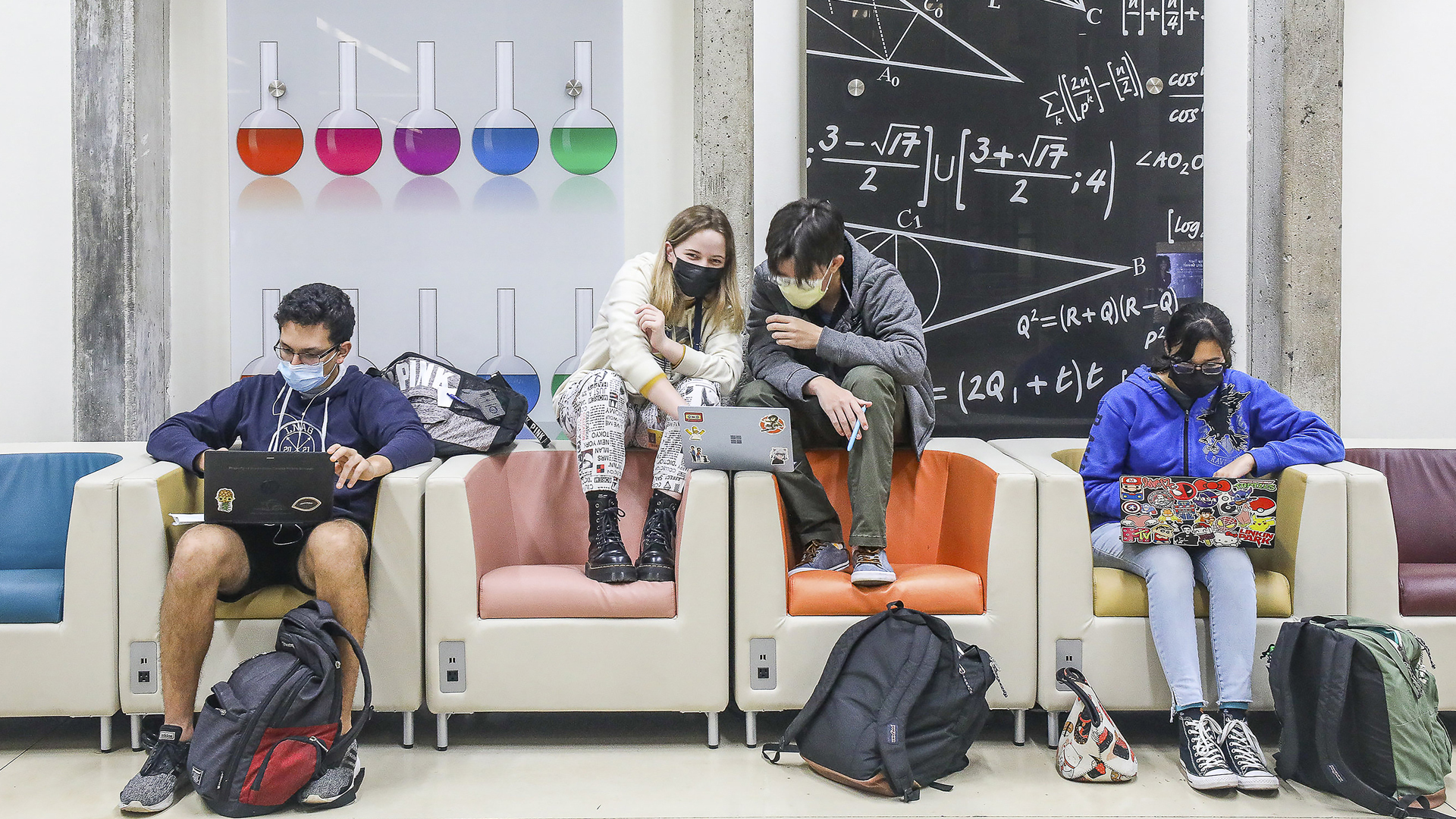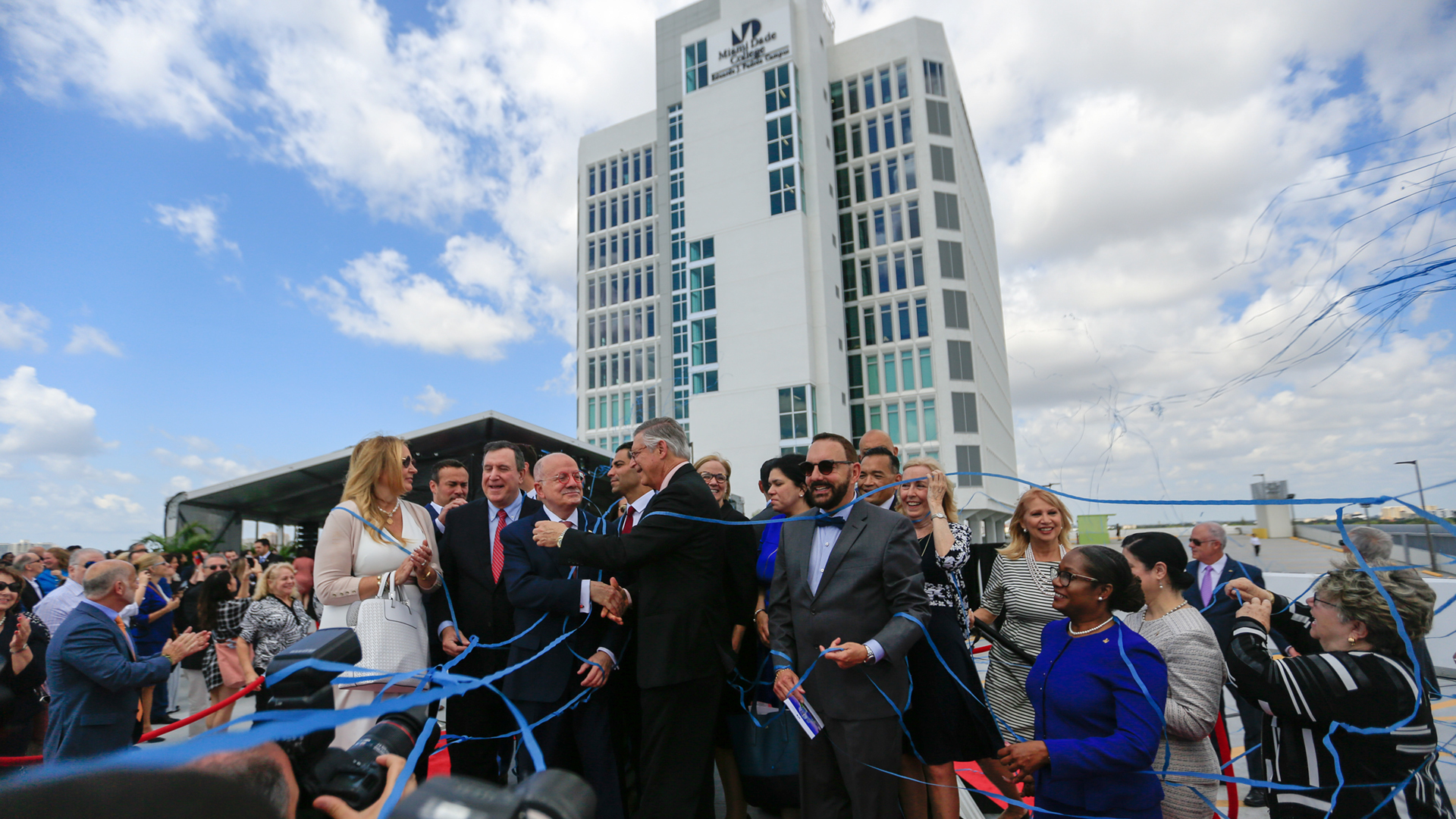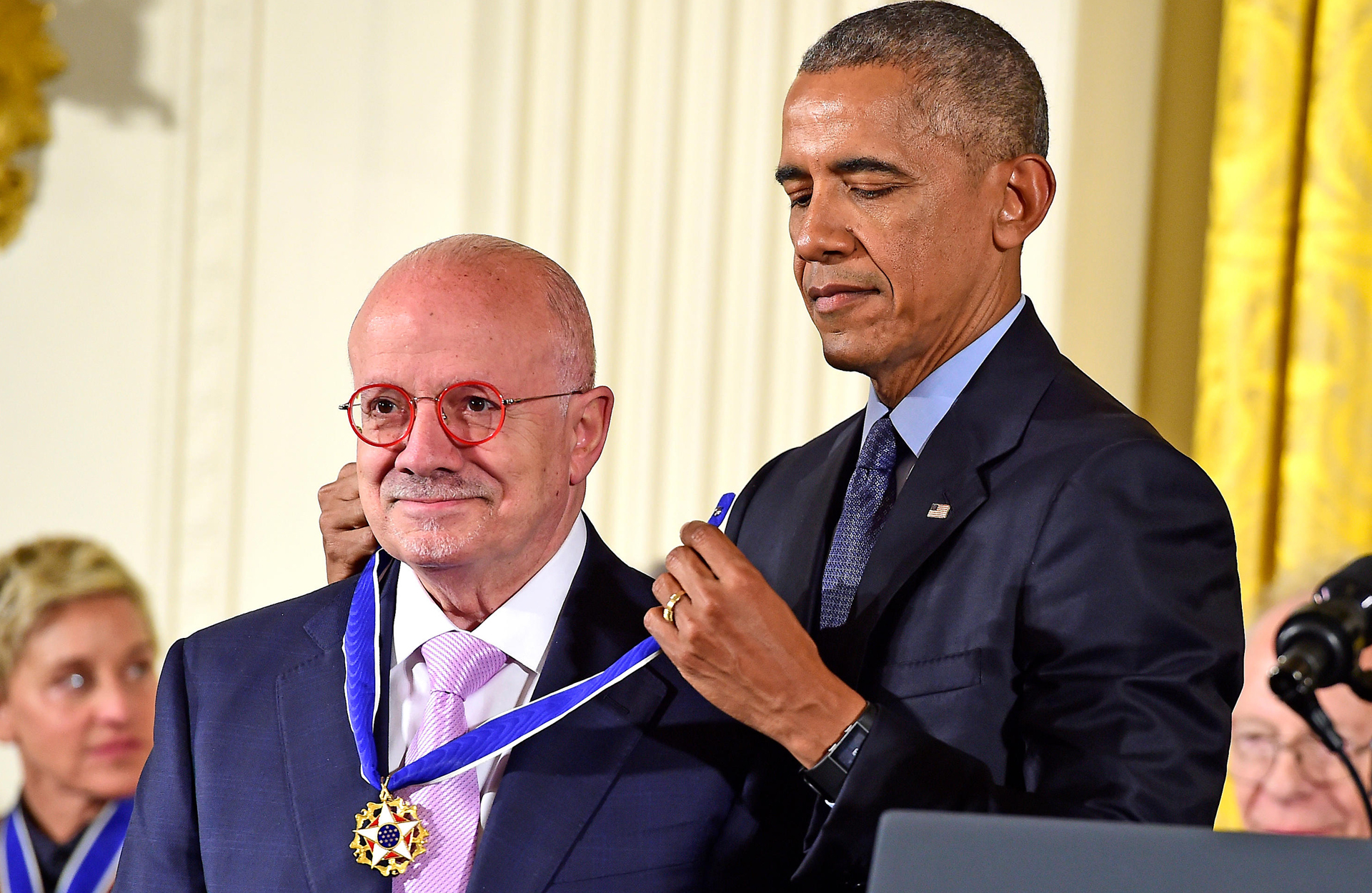
A Democratizing Force
A conversation with Eduardo J. Padrón on the transformative power of community colleges
Community colleges enroll more than a third of college students in the United States. Long seen as providing an opportunity for students who otherwise might not have pursued a higher education, community colleges offer various avenues of access especially for many first-generation students unable to afford tuition at four-year colleges and universities. Seeing community colleges as valuable only for their accessibility, however, is a too-common view that these two-year institutions are merely a “last resort” for students. But what if we looked at community colleges from another angle?
I had the opportunity to talk with Eduardo J. Padrón, president emeritus of Miami Dade College, about his experience first as a student at and then later as a visionary leader of Miami Dade, which has been described as a national model of innovation and has received awards from institutions such as the American Council on Education, Aspen Institute, Lumina Foundation, and many others. He is also past chair of the American Association of Colleges and Universities Board of Directors. In our conversation, Padrón, who led Miami Dade from 1995 to 2019, argued that more than simply offering access, community colleges embrace an assets-based approach, in which student learning is central and the value of a liberal education and clear learning outcomes guide teaching practices. Padrón also highlighted the important ways community colleges can and should link up with their communities—not simply by training people to join the workforce but by catalyzing economic and social change in their local regions and by preparing the next generation of civic leaders to revitalize their communities. At a moment when the value of a college education is in dispute, educators can take inspiration in considering a view of higher education that places community colleges at the center of urban resilience and economic mobility and sees them as a national model of all that higher education can be.
—Nancy Budwig
Can you talk about your view of community colleges and how you came to be a community college leader?
I came here from Cuba as a young teenage refugee and went to high school to complete the last two years—with no English, no money, and no knowledge of the culture. It was a big struggle. I had a difficult separation from my parents. My mother told me, “In America, you have to go to college if you really want to achieve the American dream.” And I promised that to my mother. I applied to nine colleges and was rejected by all of them. Then I learned about a recently opened school. It took me three buses to get there, but that school changed my life. It was a community college—at that time it was a junior college. I will never forget how that place—now Miami Dade College—saved my life. It was the inspiration for me to do what I have done my entire career.
Originally, my idea of the American dream was to become wealthy. So, I studied economics, and I received very good job offers when I was about to complete my PhD from the University of Florida. I visited Miami Dade, and my professors told me, “What do you mean you’re going to join the corporate monster? You need to come back and teach.” And I accepted a teaching position for one year, and one year only.
But in that year, I realized that was what I wanted to do for the rest of my life. I found my calling, my sense of purpose. And I have no regrets whatsoever. It’s been incredible and a real privilege. But it takes passion to be able to teach at a community college, because it’s a difficult job. Unlike most four-year colleges and universities, community colleges don’t select our students—we take whoever comes as long as they have a high school diploma, even if they come with severe learning gaps because they did not have the opportunity to go to the schools that would have given them the foundation to be better prepared. And many community college students, too, have faced the most difficult situations in life. Getting those students from point A to point Z can be a tough proposition. Only those educators who spend time in community colleges can understand the seriousness and the difficulties and the challenge that it is to be able to provide the students on our campuses with a good sound education.
What do you see as the role of community colleges in US higher education?
People seek out the community college as a way of getting an education that is flexible, that is accessible, and that helps them achieve their goals. Most students come to community colleges out of the conviction that that’s what they need to do if they want to have a better opportunity in life. This is a very different mindset from students who come from more privileged backgrounds and who go to college because that’s the family expectation. The difference that you notice is that many community college students are more serious about their education. Many of the students are there because they know that’s the only way out of poverty. They’re not there thinking of fraternities or sororities, and they mainly focus on taking courses, learning, and going back to work.
Many students also work full time while attending community college. They know that it takes a lot of persistence and perseverance to get to the finish line and earn a degree. Unfortunately, because of that and other factors, many of them never make it. We forget just how much poverty can affect our students’ lives. In most cases, students in community colleges are heroes who are up against all odds trying to get their degrees and the skills that will position them to have a much better life.

Most people I talk to about community colleges speak to their financial affordability, and there is no doubt, as you said, that community colleges provide an on-ramp to higher education for students who may not be able to afford other options. I’d like to hear you reflect on the full value of community colleges and what else, other than financial affordability, they offer students.
My strong belief is that talent is universal but opportunity is not. What community colleges have done is to take that to heart and understand that every student has talent. It’s a responsibility of the institutions to harness that talent and to provide the opportunities that those students may have never had to help them achieve and move forward. That is something that community colleges overall understand well and take seriously.
Because of this, community colleges are the most relevant democratizing force in the United States today. These institutions are the true equalizers in our society. Community colleges have really been the venue, the opportunity, that has given the masses what is so much needed—an affordable and accessible college education. The United States will only be able to maintain its leadership position in the world with an educated population. Today more than ever, the skills needed to succeed in the jobs that are being created in this economy are in many ways different from the skills that were necessary in the past. And if community colleges don’t provide the opportunity to the masses to learn those skills, nobody else will.
A college degree is no longer a privilege—it is an imperative. Community colleges have understood that well. We believe that opportunity changes everything. As I told our students for many years, “When you come to Miami Dade College, failure is not an option. You’re here to succeed, and this place belongs to you. We need to give you a sense of ownership and a sense of belonging. Because that gives you your best opportunity, perhaps your only opportunity, to move up the ladder.”
What are some of the ways community colleges have changed?
I remember the days of being a student, when it was sink or swim. You either made it or did not make it, and the responsibility was entirely on you. I learned from that experience, and that background has helped me better understand the mission of community colleges. When students hear that their institution really cares about their success, they become empowered. They feel that the institution is the best opportunity to change their lives.
Community college students bring a lot of grit to their education. Many have gone through so much in their lives, which makes them uniquely positioned for learning. For instance, many of them understand how going to college will help break the cycle of poverty, and they have committed to sacrificing for their studies as they support themselves and their families. These students have made a choice and want to have a sense of purpose. They want to understand why they should take this course and not that course, what skills they are learning that will help them be successful. When you put all that together, that’s what provides the resilience that allows the students to move forward and accomplish. I couldn’t be prouder of these students.
Given all of this, can you talk about what it means today to lead a community college?
Being a community college president requires almost a sense of being a missionary. This is not just a job. This is a mission. When you put it at that level, wonderful things happen. You are able to help thousands and thousands of students who otherwise would have no chance at all.
Leadership has to be the force that supports the changes and the transformation that need to take place. Community colleges (and it’s true for Miami Dade) have found a way to put students at the center of decision making. College is not about the president or the administration. It’s not about the faculty. It is about the students. You have to put the students at the center of decision making. This does not happen by mandating but by persuading and by leading the way, by rolling up your sleeves and working with all the stakeholders at the institution. It’s especially important to empower faculty to assume the responsibility to design classroom experiences that work for these students. Community college students, who often are commuters, spend most of their campus time in the classroom with a faculty member and then go back to work. We need to make sure faculty get the pedagogy that would really help them succeed.
Miami Dade was one of the first community colleges to embrace learning outcomes. I knew that if we were going to succeed, developing learning outcomes for courses and programs was not something we could impose on the faculty. We would need to invite the faculty to come together to have deep discussions as to what students should learn in order to deserve a Miami Dade diploma that would guarantee their success in life. We needed to ensure that a liberal education was present and alive in student learning opportunities, along with the technical and “soft skills” required in the twenty-first-century economy. And that takes leadership. As president, I always saw myself as a cheerleader. My job was not only to lead but also to support the work of others, to motivate, to incentivize, and to change the reward system so people saw their work rewarded.
How do you think about the connections between community colleges and their local regions?
Early in my work at Miami Dade, I decided that I wanted to do everything possible to make the college a college of choice, not a college of last resort. Students who graduated from Miami Dade sometimes wouldn’t even put their degree on their résumé because of the “last resort” stigma toward community colleges. We needed to change that. We needed to make sure that Miami Dade had connections with the surrounding community at all levels and with all kinds of institutions. Miami Dade has since become the center of the community at all levels, whether it’s political, social, economic, or cultural. The college is considered the main catalyst in the renaissance of Miami. One can look at the Miami Film Festival, Miami Book Fair, or a variety of other public events—all of which emanate out of Miami Dade. The college is an anchor institution in our community.

Today, not only Miami Dade graduates but people who completed even just one course take pride in the college. “I’m MDC,” they’ll say, meaning “I’m Miami Dade College,” which is a slogan that we created. There is hardly a household in Miami Dade County that has not been touched by the college. It is unbelievably rewarding. You look at the leadership of the city and the county and the municipalities around it—many of the people in leadership positions both in the public and private sectors are graduates of Miami Dade College.
Do you have any advice for higher education leaders at the start of their careers who believe deeply in the kind of values you do?
I do. Come and work at a community college. If you really want to have a deep sense of purpose, there is no better place to be than at a community college. People with the talent and determination can have such an impact. At community colleges, it’s often up to individual educational leaders to take that opportunity to make a huge difference in the lives of the students they serve, turning potential liabilities into real assets. I see a lot of young educators today who get inspired by joining a community college. If you see it just as a job, that’s not going to do it. You have to see it as more of a missionary type of opportunity.
You’ve won many awards—is there a particular one that you’re most proud of?
That’s a difficult question. Every award you get has significance, because it took a person or it took a group of people to value your work, to value your contribution. So, it’s hard to put one award over the other. As someone who came to this country as a refugee, as an immigrant, and who struggled significantly at the beginning, I have to say that getting the Medal of Freedom in 2016 was the most touching. It’s difficult to explain the emotions that I felt in receiving the medal from President Barack Obama, because for me what it meant was a recognition that in this country still, despite what we see happening today, only in America, someone like me, from a foreign country, could come here as a young person and reach the point where you get the most important civilian award in the nation.

Do you have any final comments about leading a community college?
There is no better opportunity to transform an institution to be of real value to your community, to be able to change the lives of so many people who otherwise wouldn’t have that opportunity. I would have paid to serve in the job of president of Miami Dade because, frankly, I cannot think of anything else in this life that I could have engaged with that would have given me more satisfaction and more opportunities to bring about change, to create change makers, to have an impact on the life of a community, to give everyone a sense that they belong. In today’s divided society, that is so essential. Community colleges have the greatest opportunity to be those change agents for the better, to inspire, to really bring about the best talents of people everywhere for the common good. There is no better mission, no better opportunity than that.
Lead photo: Eduardo J. Padrón, president emeritus of Miami Dade College (Joel Ritchie)